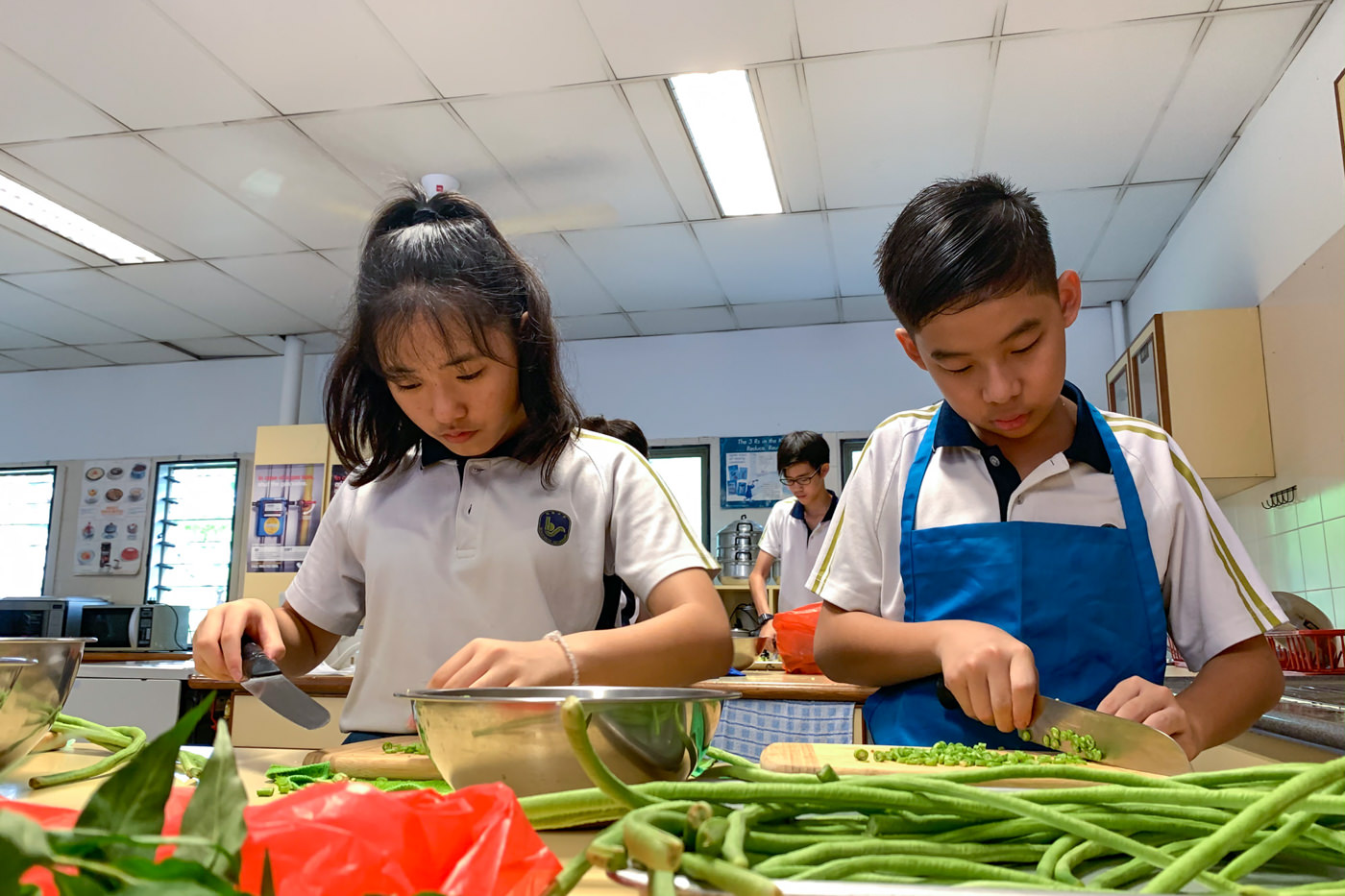Nutrition and Food Science
Lower Secondary: Food and Consumer Education
The study of Food and Consumer Education (FCE) at Bendemeer Secondary School aims to equip students with the knowledge to be health-conscious and discerning consumers; enabling them to better manage their lives for the present and the future. The curriculum centres on two core areas of study, namely Food Studies and Consumer Studies where students learn to:
- Understand the importance of nutrition for long-term health
- Apply basic principles of consumer education
- Apply basic financial principles for everyday decision making and planning
-
Appreciate and develop an understanding of food, nutrition and trans-cultural awareness in the global context
-
Nurture and develop critical thinking, problem-solving and creativity, a spirit of enterprise, innovation, and aesthetic awareness; to make informed and discerning food and consumer-related decisions
-
Develop positive attitudes and values for the well-being of the community (families and society)
-
Demonstrate effective and responsible use of resources for the individuals and the community
Due to the experiential nature of FCE, inquiry-based learning to teach FCE is used. Through the cyclical process of Engage, Explore, Explain and Apply, students are provided with an authentic learning context to relate and apply their knowledge.
A combination of formative and summative assessments are meted out to assess students’ application of knowledge and skills and test them on their concepts learnt in FCE. These include a written paper, practical lessons and coursework.
In addition, the Nutrition and Food Science (NFS) unit extends students’ learning through programmes such as:
- Collaboration with CCE department for the school’s Sec 1 LLP towards Appreciation Day
- Bendemeer MasterChef competition - Sec 1 MasterChef Competition
The theme-based competition allows students to work in pairs to demonstrate their culinary knowledge and skills to prepare a dish of their choice before a judging panel. Apart from cooking, students will get to develop their leadership abilities, self-confidence and apply their decision-making in the process.
Upper Secondary: Nutrition and Food Science
Nutrition and Food Science (NFS) is offered as an elective subject for our upper secondary students. The subject seeks to provide students with a broad understanding of concepts in nutrition and health, food literacy and principles of food science. Students are exposed to authentic real world contexts through hands-on practical and coursework.
Through these learning experiences, the curriculum aims to develop students to:
-
Lead a healthier lifestyle proactively through proper diet and nutrition
-
Advocate sustainable food consumption by planning and making appropriate food choices
-
Apply principles of culinary science creatively in food preparation and cooking
Similar to FCE, inquiry-based learning is used to teach and support the applied learning nature of the NFS curriculum. As a learner-centred approach, it allows students to deepen their thinking, foster and construct their learning thereby retaining their knowledge better.
In the assessment of the NFS curriculum, both formative and summative assessment are used as our school-based assessment to check for students’ understanding and provide opportunities for them to apply the knowledge and skills they had learnt. These include written papers, practical lessons, food science investigations and coursework.
The department seeks to expose students to various post-secondary options and deepen their learning. An example would be the recent Nutrition Health – “Healthy Cooking and Label Reading” talk conducted by Republic Polytechnic where students learnt about aspects of healthy cooking, label reading and a virtual demonstration of healthy cooking.



